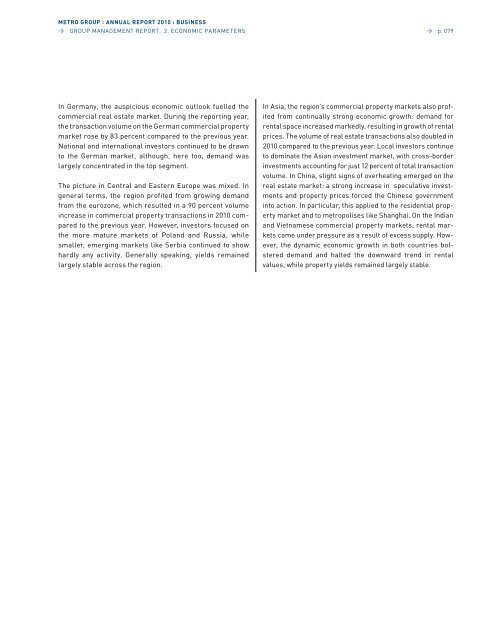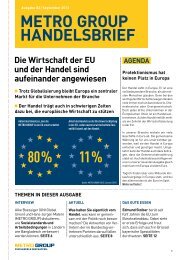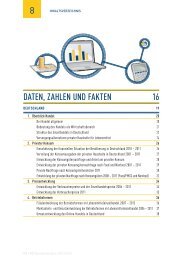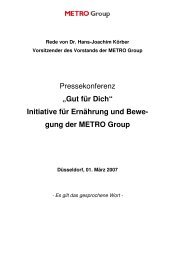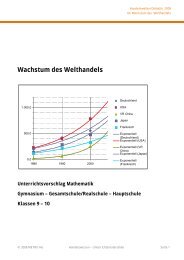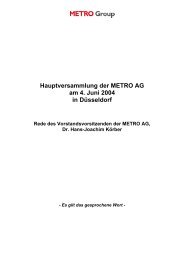pdf (18.3 MB) - METRO Group
pdf (18.3 MB) - METRO Group
pdf (18.3 MB) - METRO Group
Create successful ePaper yourself
Turn your PDF publications into a flip-book with our unique Google optimized e-Paper software.
<strong>METRO</strong> GROUP : ANNUAL REPORT 2010 : BUSINESS<br />
→ GROUP MANAGEMENT REPORT : 2. ECONOMIC PARAMETERS<br />
In Germany, the auspicious economic outlook fuelled the<br />
commercial real estate market. during the reporting year,<br />
the transaction volume on the German commercial property<br />
market rose by 83 percent compared to the previous year.<br />
National and international investors continued to be drawn<br />
to the German market, although, here too, demand was<br />
largely concentrated in the top segment.<br />
The picture in Central and Eastern Europe was mixed. In<br />
general terms, the region profited from growing demand<br />
from the eurozone, which resulted in a 90 percent volume<br />
increase in commercial property transactions in 2010 compared<br />
to the previous year. however, investors focused on<br />
the more mature markets of Poland and Russia, while<br />
smaller, emerging markets like Serbia continued to show<br />
hardly any activity. Generally speaking, yields remained<br />
largely stable across the region.<br />
→ p. 079<br />
In Asia, the region’s commercial property markets also profited<br />
from continually strong economic growth: demand for<br />
rental space increased markedly, resulting in growth of rental<br />
prices. The volume of real estate transactions also doubled in<br />
2010 compared to the previous year. Local investors continue<br />
to dominate the Asian investment market, with cross-border<br />
investments accounting for just 12 percent of total transaction<br />
volume. In China, slight signs of overheating emerged on the<br />
real estate market: a strong increase in speculative investments<br />
and property prices forced the Chinese government<br />
into action. In particular, this applied to the residential property<br />
market and to metropolises like Shanghai. On the Indian<br />
and vietnamese commercial property markets, rental markets<br />
came under pressure as a result of excess supply. however,<br />
the dynamic economic growth in both countries bolstered<br />
demand and halted the downward trend in rental<br />
values, while property yields remained largely stable.


